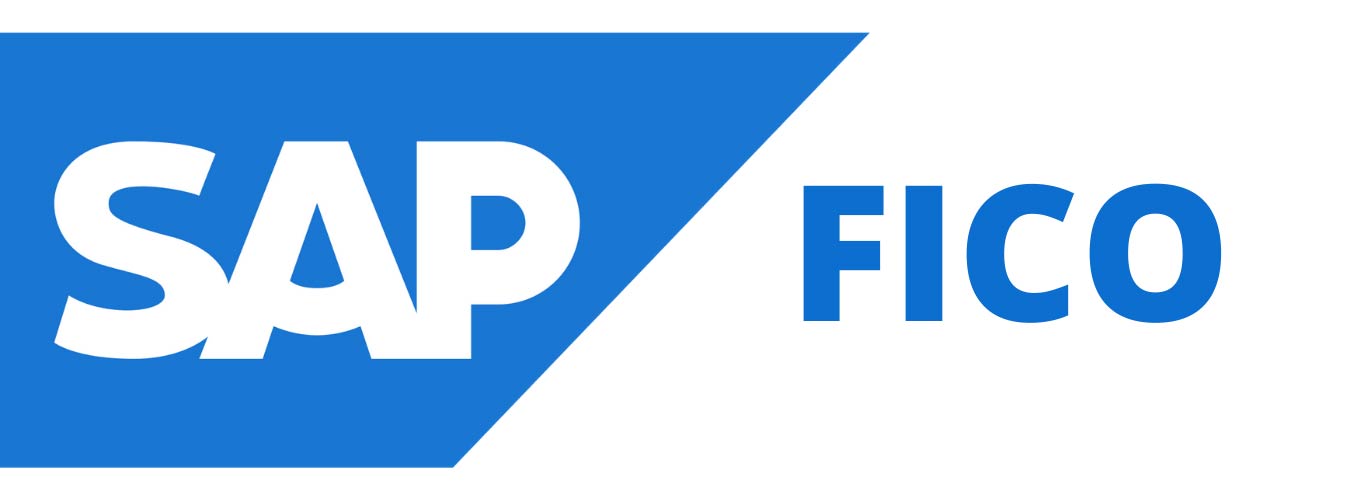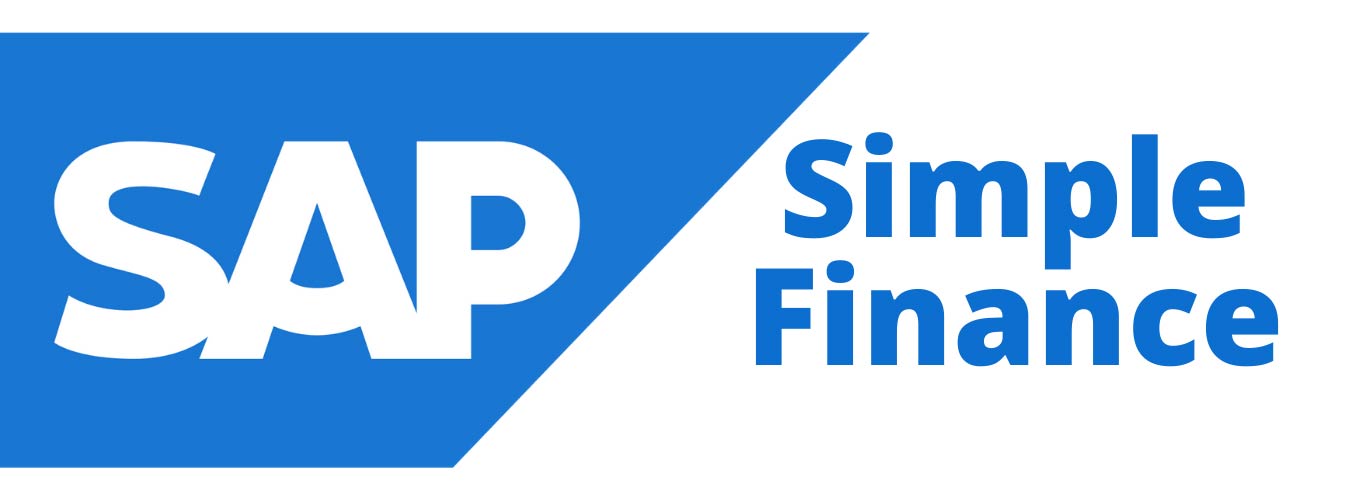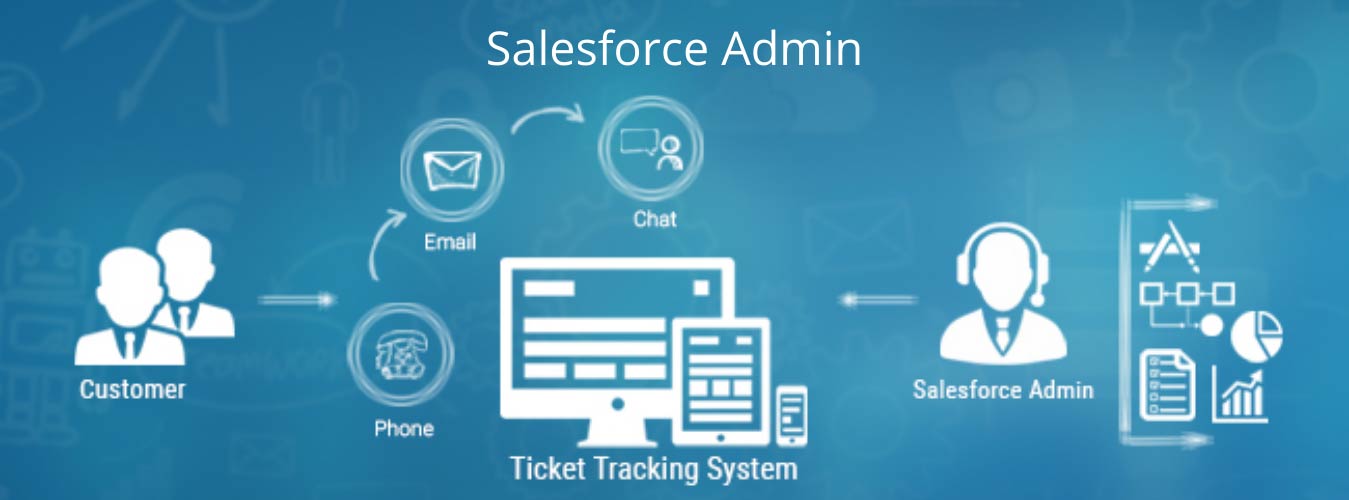SAP FICO

SAP FICO
SAP FICO is very important when it comes to the industries across all domains since it has easy and simple configuration tools, along with compatibility with other accounting software and user-friendly features. Irrespective of it being the banking or finance, manufacturing, and healthcare or media services, SAP FICO’s efficient processing of data and speedy processes helps attain organizational goals

Course Summary
SAP Financial Accounting FI Module has all the resources needed to meet the entire set of financial and accounting needs of an organization. Financial managers can review the financial standing of the company using this module along with the other department managers. Such access to the financial status of a company in real time is a step up over legacy systems which require overnight updates prior to financial statements often which can be produced for review by management. This is one of the most important modules of SAP ERP and can be integrated with other existing SAP modules such as SAP PP, SAP MM, SAP SCM and a whole lot more.
The SAP CO module has the unique support that is offered to management in terms of planning, reporting along with monitoring operations of the enterprise. The levels of information provided by this module enable management to enhance their decision-making capabilities. Information regarding costs and revenue for an enterprise is provided by the Cost Element Accounting component of the SAP CO module. Such postings are automatically updated from FI to CO for synchronization of data. SAP CO aids in monitoring, coordination, and optimization of all processes in an enterprise. This includes management and configuration of master data which covers the cost and profit centers, internal orders and other functional areas.
SAP FICO is very important when it comes to the industries across all domains since it has easy and simple configuration tools, along with compatibility with other accounting software and user-friendly features. Irrespective of it being the banking or finance, manufacturing, and healthcare or media services, SAP FICO’s efficient processing of data and speedy processes helps attain organizational goals.
Course Highlights
SAP FICO certification courses can be divided into the following sections and subsections:
- Introduction to FI/CO- This includes the definition of SAP FI/CO, Sub Modules in FI and CO and Introductions to G/L, Banking and Treasury and more.
- Global Parameters- This covers Company and Company Code, Business Area and Credit Control Area, Fiscal year variants and more
- G/L Concepts- This section spans the preparation and finalization of COA in Real Time, G/L integration and automatic clearance maintenance.
- A/R & A/P, Banking– Account groups, terms of payments, Tax calculation procedures, all form a part of this section
- Asset Accounting- The scope of this section covers chart of depreciation, Group Assets and Strategy on data Migration related to Asset
- Integration- the scope of FI-MM Integration, Accounting aspects of Material Master and Material Movements Types are covered here
- Controlling & Cost Element Accounting- spans the scope of Controlling Area, Statistical Key Figures and more
- Cost Center Accounting- Cost Center Hierarchy, Cost Center Categories and more are covered here
- CO-PA, Internal Orders, Profit Center Accounting, Product Costing and Material Ledger
Real-Time Concepts are also covered in detail.
Prerequisites
Even though there are no stringent requirements to take up SAP FICO, it helps to have a basic understanding of finance and accounting. Prior experience and exposure to accounting and dealing with financial data would be an added advantage to taking up this course. A good comprehension of data flow within the SAP system, along with an educational background in commerce is also an added plus while taking up SAP FICO.
Why to learn our Course?
- Understanding of how SAP Financial Accounting works
- Fundamentals of SAP Financial Accounting
- Gaining a knowledge of Essential Financial Accounting terms
- Comprehension of General Ledger, its features, and their importance
- Understanding the manner in which the financial module will integrate with the other SAP modules
- Organizational elements of R/3 and the basic settings
- Ability to Classify and reconcile R/3 documents with the original ones
- Comprehension of Opening and closing posting periods and understanding of posting authorizations to users
Who can attend?
SAP FICO training spans a wide range of candidates as given below:
- Finance professionals, SAP consultants, finance controllers and finance managers stand to gain the most from a SAP FICO certification
- Finance students, accountants, and students with a degree in Finance can take up SAP FICO for career advancement in their current organization
- SAP Technical consultants and developers can take this up to enhance their personal operational efficiency.
- Finally, SAP FICO certification also comes highly recommended for CPAs and CFAs
Advantages of SAP FICO
SAP FICO has multi-tiered advantages when it comes to implementation and uses in the enterprise of today:
- Enables smooth financial accounting and controlling functions
- Offers rapid, reliable and relevant data to feed the requirements of external reporting tasks like Profitability Analysis, Profit and Loss Statements, Balance Sheet and a whole lot more.
- Aids one in tracking and monitoring data of varying costs and profit centers located across the world from an individual platform.
- Accelerated management decisions are made possible using Real-time financial processing.
- The ability to respond to constantly changing business needs is made possible and in a timely manner
- Corporate performance and business strategy generation gets a huge leg up when SAP FICO is implemented
- Simplification of varied processes ranging from reporting, financial consolidation, scheduling and collaboration with other departments is made a reality. Along with this even the transparency across the enterprise is enhanced greatly
- Everything ranging from Cash-flow, treasury functions and credit management to receivables and payables and collections can be managed with increased levels of efficiency
- Enhanced practices in clearing government regulations, adhering to accounting standards and regulation of internal processes and more is possible using SAP FICO
Companies using SAP FICO
Accenture Consulting
The Gartner Magic Quadrant for SAP Implementation Service Providers has been awarded to Accenture showing that the premier global software services provider excels at the use of SAP technologies, and SAP FICO in particular
Suzlon Energy Limited
This astounding renewable energy enterprise is known for implementing SAP FICO to optimize enterprise operations in the financial and accounting sections of the enterprise
Nestle Foods
This is a Swiss-based food multinational is a well-known industry entity that uses SAP FICO to power its financial operations on a periodic basis.
Honeywell International
As the leading name in commercial and consumer products the world over, it needs constant upkeep of financial, accounting and related processes. This is made possible by SAP FICO
Hewlett-Packard
Without the unique features of SAP FICO, this global IT conglomerate has few chances of holding together its financial infrastructure.
Why Bumaco Global?
We are the premier provider of certification courses with standards that match global benchmarks because:
- We provide real-time and placement focused sap fico training
- We employ SAP FICO trainers who are SAP financial accounting and controlling (FICO) certified experts and seasoned working professionals with knowledge gained from hands-on real time projects.
- We focus on the needs of the SAP FICO trainees and train them on par with industry standards.
- The experience gained by candidates through certification can count towards real-time experience as a SAP FICO professional
What Do We Provide?
- Experienced faculties who are certified in the area of SAP FICO
- Quality study materials like assignments, assessments, case studies and video presentations
- Access tools to perform analysis and reporting
- Become a certified with the concepts, techniques and its tools
FINANCE
CONTROLLING
Certification Help
Vendor and vendor-neutral certifications are available in the industry architects with the different features to identify the skill sets of qualified software professional. A certification in SAP FICO will bring a great deal of value to your SAP career where it showcases your proficiency and expertise to the industry.
At present the most popular certifications offered by SAP for SAP FICO (Financial Accounting and Controlling)
SAP Certified Application Associate - Financial Accounting with ERP 6.0 EhP6
This certification exam validates that the individual has basic knowledge and seasoned skills in the sphere of SAP ERP Financial Accounting. The exam verifies that the professional has a good and overall understanding within this consultant profile, and can apply this knowledge practically in projects under the supervision of an experienced consultant. This certificate is the most suitable prerequisite for the qualification to SAP Certified Professional in Financial Accounting. It is suggested as an entry-level qualification to enable consultants to get familiar with Financial Accounting projects.
Exam Details
- Exam Code- C_TFIN52_66
- 80 Objective Questions
- Exam Duration 180
- Exam Cost -$500
SAP Certified Application Associate - Financial Accounting with SAP ERP 6.0 EHP5
>The certification validates fundamental knowledge and proven skills in the area of the SAP ERP Financial Accounting. It tests the candidate’s comprehensive understanding with this consultant profile and can implement this knowledge practically in projects under the supervision of a seasoned consultant. This certificate is the ideal stepping stone to the qualification to SAP Certified Professional in Financial Accounting. It is suggested as an entry-level qualification to enable consultants to get familiar with Financial Accounting projects.
Exam Details
- Exam Code- C_TFIN52_65
- 80 Objective Questions
- Exam Duration 180 mins
- Exam Cost -$500
SAP Certified Application Associate - Financial Accounting with SAP ERP 6.0 EHP4
This validates proven skills and basic knowledge in the sphere of the SAP Financial Accounting. It proves that the candidate has a holistic understanding within this consultant profile and can apply this knowledge practically in projects under the supervision of a seasoned consultant. This certification is needed for qualifying as a Financial Accounting Application Professional in more specialist areas. It is suggested as an entry-level qualification to let consultants get familiar with Financial Accounting projects.
Exam Details
- Exam Code- C_TFIN52_64
- 80 Objective Questions
- Exam Duration 180 mins
- Exam Cost -$500
Exam Preparation Tips
- Preparation for each topic is best accomplished by analyzing and contrasting with other topics and with real-time functionality.
- SAP sponsored practice questions to test fundamental knowledge on SAP FI.
- Comprehend configuration and the value entered in each screen.
- Comprehend the end user level transactions and functionalities.
Differentiate Business area and Functional area
Business Area
It is an organizational unit of financial accounting that symbolizes a separate area of operations within an organization and to which value changes recorded in Financial Accounting can be allocated. For example, if a company is having several branches in India then each branch can be treated as separate business area.
Functional Area
It is an organizational unit in Accounting that groups the expenses of an organization of functions. For example administration, marketing, sales and distribution, research etc.
Define Chart of Accounts and its types
There are three types of Charts of Accounts:
- Operating Chart of Accounts
It contains the G/L accounts that are used posting in company code in a day to day activities. It used for financial and cost accounting.
- Country Specific Chart of Accounts
It contains G/L accounts that are used to meet the country’s legal requirements. Such charts are generally assigned to company code.
- Group Chart of Accounts
It contains G/L accounts that are used by a complete corporate group for consolidating the reports for the entire group
What is Investment Budget Categories and list the steps to configure?
Investment Budget Categories helps to examine the company’s capital and expenses separately. For example, if you have capital and budget as budget categories, then you gain reports on both capital and budget at the same investment node.
Steps involved in its configuration are:
Discuss profit center and cost center
Profit Center
- It is an organizational unit of accounting, which is used for evaluating the profit or loss of an individual.
- It reflects a management-oriented structure of the organization for the purpose of internal control.
- It is responsible for company’s revenues and costs.
Cost center
- It is an organizational unit within a controlling area where cost is captured.
- Company’s divisions can be done on the basis of activity related and responsibility related standpoints
What is the necessity of an Internal order?
The internal order is necessary due to the following reasons:
- They provide descriptions regarding the internal orders in a controlling area.
- They monitor overhead orders.
- They monitor investment orders.
- They have the ability to maintain accrual orders.
- They also monitor orders that generate revenues for the company
Discuss the benefits of learning or using SAP FICO in an organization
The benefits of learning or using SAP FICO in an organization are:
What are the job titles/designations for an SAP FICO consultant?
There are several job titles/designations for an SAP FICO consultant and some of them are:
- SAP FICO Technical Consultant
- SAP FICO Functional Consultant
- SAP FICO Business Analyst
- SAP FICO Finance Business Analyst
- SAP FICO Senior Associate
- SAP FICO Associate
- SAP FICO ABAP Consultant
- SAP FICO Simple Finance Consultant
Discuss the career paths for SAP consultants
Career paths for SAP consultants are as follows:
- Project Trainee: Students work as trainees on internships for a definite time with the consulting team and are given a defined work assignment.
- Junior/Trainee Consultant: This is an entry level job for non-experienced people. It generally takes 2 to 3 years for them to move to next post i.e. Technical Consultant
- Consultants: They normally have 3 to 5 years of Domain Process knowledge experience in their area.
- Senior Consultants: They are responsible for a functional area in the project and generally manages sub-teams in his area. They have 3-7 years of experience.
- Project Lead/Manager: They have a minimum of 8 years of experience in SAP consulting.
- Program Manager/Principal: They lead a large project or handles multiple project engagements.
- Practice Head/Director: He is in-charge of all SAP consulting practices
What are the different sectors where SAP FICO consultants can work?
The different sectors where SAP FICO consultants can work are:
Explain the tools used by SAP FICO
Tools used in SAP FICO are:
LSMW
- It stands for Legacy System Migration Workbench
- It is used to import legacy data from spreadsheets or sequential files.
- It automatically converts the raw data in the format required by SAP.
- It enables data import using the standard interfaces of SAP
BDC
- It stands for Batch Data Communication
- It is used for mass input of data by simulating user inputs in screens of existing transactions.
- Its two main methods are:
Call Transaction Using
Batch Input Session
What are the Prerequisites of SAP FICO?
Even though there are no stringent requirements to take up SAP FICO, it helps to have a basic understanding of finance and accounting. Prior experience and exposure to accounting and dealing with financial data would be an added advantage to taking up this course. A good comprehension of data flow within the SAP system, along with an educational background in commerce is also an added plus while taking up SAP FICO
What are the system requirements to attend the live sessions?
- Processor I3 with 4GB RAM, OS can be 32 or 64 bit (Laptop/Desktop)
- Internet connection with Min 1 MBPS speed
- Good quality headset
- Power back up
- You can also log in through your Android mobile phone/ Tablet with 4G internet connectivity
What if the trainee miss any session?
The trainee can watch the recorded video of all the sessions in the LMS or Trainee can attend the missed session in the upcoming batches.
What do the trainee get from the LMS?
The trainee will have the access to Recorded sessions, Assignments, Quizzes, Case Studies, few course documents posted by trainers, Placement related docs etc.
What is the validity of the LMS access? What if the LMS access is expired.
The trainee will get 1-year access to the LMS. You can contact our support team to extend the validity of the LMS.
Will the trainee get any project to work on with SAP MDG course?
Yes, of course! The trainee will get the project at the end of the course; you need to submit a project. Our trainers will assist you to complete the project.
How are the practicals done?
The trainee will get step by step assistance on VM installation from our expert trainers during the practical sessions, post live sessions, you can practice at your end and submit your queries if any to our support team support@bumacoglobal.com for further assistance.
What are the types of training we offer?
- WBLT- Web-based live Training
- WBVT- Web-based Video Training
- One on One live training
- Self-paced training
- In class training
What are the benefits of online training ?
- Flexible location
- Flexible schedule
- Travel free
- Time saving
- Cost saving
- LMS access
- You will never miss a class
- Two-way interactive
- Fast learning
- Trainer support for 1 year
Who are our Trainers?
Our trainers are industry experts having 10 to 15 years of industry experience and 3-4 years of training experience. Most of the trainers are working professionals who teach the real time scenarios which will help the students to learn the courses in an effective manner.
Will the trainee get the certification post the course completion?
Yes, Trainee will get the participation certificate from Bumaco global upon successfully completing the course.
What if the trainee has more queries and need assistance?
The trainee can drop an email to support@bumacoglobal.com an automatic ticket will get generated. Our support team works 24/7 to assist you with all your queries.
Be the first to add a review.
Designed & Developed by www.brandhype.in
Copyright © 2020 Bumaco Global. All rights reserved.


